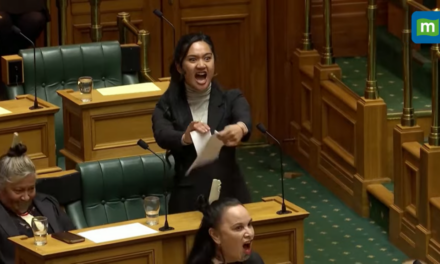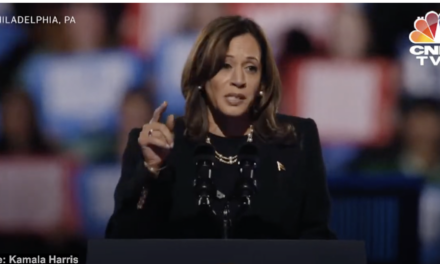We support our Publishers and Content Creators. You can view this story on their website by CLICKING HERE.
Not content merely to harass Montana Attorney General Austin Knudsen with a bogus 41-count ethics charge in retaliation for his representation of the state legislature in a 2021 legal battle over judicial reform legislation (as previously reported here), the left-of-center Montana Supreme Court — through the attorney discipline apparatus it controls — is proposing a 90-day suspension of Knudsen’s law license. It does so two weeks before Election Day, and Knudsen, a Republican, is running for re-election. Not surprisingly, Knudsen’s Democratic opponent is using the disciplinary proceedings against Knudsen as a campaign issue. How convenient.
The state supreme court’s vindictive motivation is evident by the timing of the proposed discipline, and the fact that in May 2022 “a previously appointed special prosecutor had recommended a different sanction — only a private admonition,” according to the Daily Montanan.
Judges are supposed to be impartial and free of bias. In Montana, however, issues involving attorney discipline are decided by a hearing panel appointed by the state supreme court, to resolve charges brought by a prosecutor also appointed by the state supreme court, regarding the alleged breach of ethical rules also promulgated by the state supreme court.
Now, in a long-running separation of powers dispute between the activist state supreme court and the Republican-controlled Montana legislature (summarized here and here), the court’s hand-picked lackeys are proposing to punish the state’s elected attorney general for simply doing his job — advocating on behalf of the state legislature. The Montana Supreme Court, described by one observer as “America’s worst court,” is the prosecutor and judge of its own case. This type of lawfare against a sitting state attorney general is unprecedented in America.
Court’s Partisanship
In sprawling and lightly populated Montana, the seven-member state supreme court is controlled by the state’s trial lawyers. Montana’s justices are elected, and self-interested law firms dominate the funding of so-called “nonpartisan” judicial races. Judicial candidates appear on the ballot in Montana without identifying party affiliation, preventing voters from making a partisan choice. As a result, for decades the state supreme court has been badly out of sync with the state’s legislature and governors. Former University of Montana law professor Rob Natelson has described the state supreme court’s rulings as “banana-republic conduct,” questioned its legal competence, and concluded that “Montana’s bench may be unique for its disregard of basic standards of justice, the extent of its intervention into the state’s political life, and its high-handed use of power.”
While the legislature makes laws and controls the purse, the Montana Supreme Court oversees the state bar and is responsible for attorney discipline. Thus, Knudsen, as the state’s elected attorney general, is subject to the authority of the state supreme court. Even though the Montana legislature ultimately prevailed regarding passage of a judicial reform bill (S.B. 140), Knudsen was charged with violating the Montana Rules of Professional Conduct for unfairly questioning the integrity of the justices in connection with a related dispute over a subpoena the legislature had issued to the court’s administrator. When the state supreme court quashed the subpoena, the legislature — represented by Knudsen — objected that the court’s ruling was invalid due to a conflict of interest. The legislature felt strongly enough to challenge the subpoena ruling — albeit without success — all the way to the U.S. Supreme Court.
Court’s Surrogates Recommend Suspension
On Oct. 23, less than two weeks prior to the election, a five-member panel appointed by the Montana Supreme Court, and serving as the court’s “Commission on Practice,” issued a decision recommending a 90-day suspension of Knudsen’s law license. The court’s hand-picked panel acknowledged that in challenging the propriety of the court’s quashing of the legislature’s subpoena, Knudsen was directed by his client — the Republican-controlled legislature — “to press the dispute with the Court to its ultimate conclusion.” In other words, Knudsen — duty-bound to zealously advocate on behalf of his client — did exactly what the state legislature requested. Unable to retaliate directly against the legislature, the court — through its toadies — is making Knudsen the scapegoat and setting a vindictive precedent for future internecine disputes.
Montana’s judiciary opposed S.B. 140 because the bill eliminated the seven-member Montana Judicial Nominating Commission, three members of which had previously been chosen by the state’s judiciary. Prior to S.B. 140, the governor could only fill vacancies in the judiciary with candidates approved by the commission. Senate Bill 140 gave the governor unilateral authority to fill judicial vacancies with any attorney in good standing. The judiciary was angered that its influence over judicial appointments was terminated. Although the state’s chief justice opposed the bill, the state supreme court ultimately upheld the constitutionality of S.B. 140 by a 6-to-1 vote.
Battle between Legislature and Court
The subpoena battle between the legislature and the court created the greatest acrimony. In National Review’s “Bench Memos” blog, court watcher Ed Whelan summarized the donnybrook that ensued when the legislature requested that the supreme court’s administrator provide the emails generated by her improper solicitation of judicial opposition to S.B. 140, which the court and its staff vociferously resisted. Unfortunately, Knudsen was caught in the middle.
In short, this was a bare-knuckle brawl between the Montana legislature and a head-strong state supreme court. Knudsen, as legal counsel for the legislature, was ethically obligated to advocate on his client’s behalf. As is common in hard-fought court battles, harsh words were used in the course of the litigation. The thin-skinned state supreme court — unaccustomed to such criticism — is clearly using Knudsen as its whipping boy to get even with the legislature. As reported in the Daily Montanan, during the close of the Commission on Practice hearing:
Montana Solicitor General Christian Corrigan delivered the closing for Knudsen, saying that punishing Knudsen for inflammatory, and allegedly derogatory, statements made about the Supreme Court during 2021 litigation would further erode confidence in the judicial system, widen fault lines between partisans, and only make intergovernmental relations worse. “In fact, it will likely only exacerbate the conflict between the branches,” Corrigan said.
The Montana Supreme Court is improperly using the attorney discipline system, which it controls, as a weapon in a political dispute. To top it off, the state supreme court itself will make the final decision on Knudsen’s fate. This is outrageous, and contrary to the bedrock legal principle that no one should be the judge of his own case (nemo judex in causa sua).
The rule of law is under siege in Montana. The attorney discipline system is increasingly becoming the go-to weapon for neutralizing crusading conservative lawyers. The state GOP chair accurately denounced the disciplinary proceedings against Knudsen as a “political show trial” before a “kangaroo court commission.” Even worse, the timing of this Kafkaesque travesty amounts to election interference.
Mark Pulliam is a contributing editor to Law and Liberty who blogs at Misrule of Law. He lives in Blount County, Tennessee.

 Conservative
Conservative  Search
Search Trending
Trending Current News
Current News 





